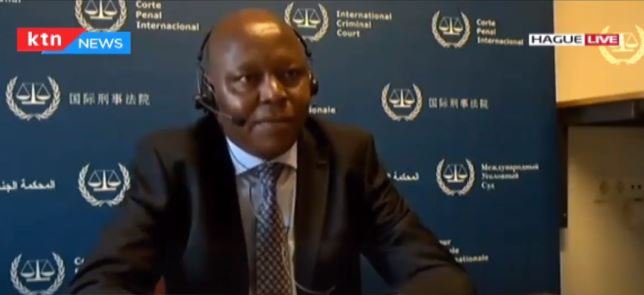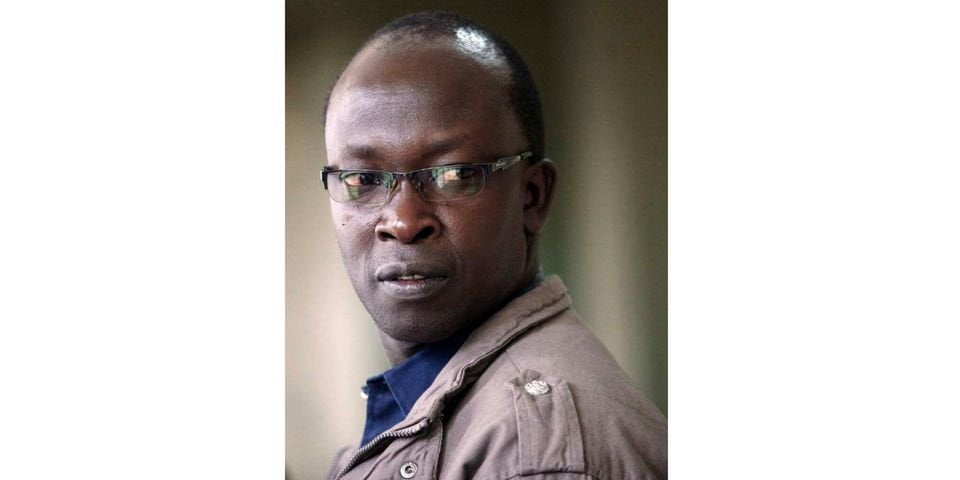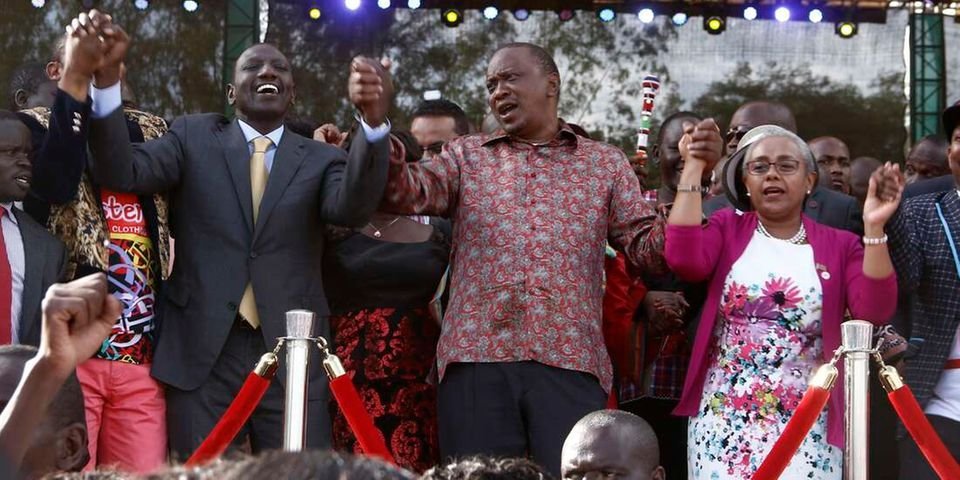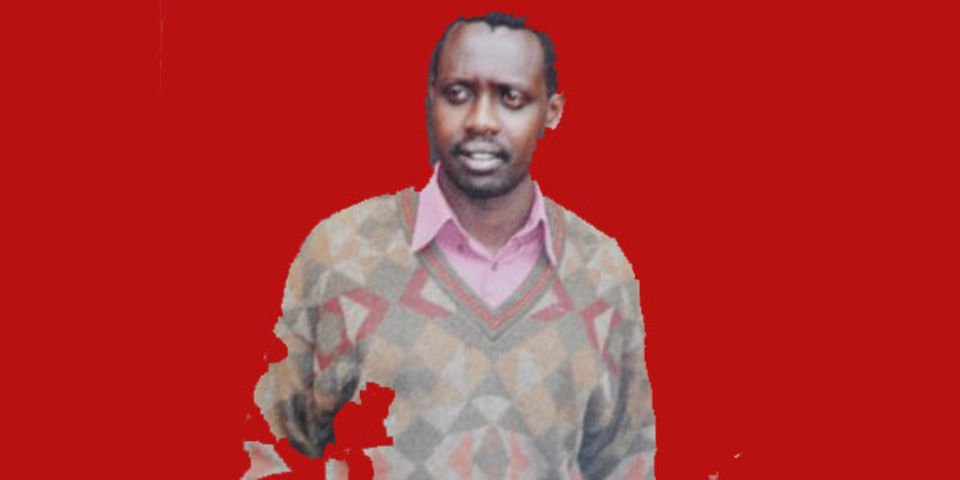The Paul Gicheru trial in The Hague has taken a twist, with the prosecution forwarding “evidence” that implicates Deputy President William Ruto in the witness corruption programme that sabotaged the case against him and radio journalist Joshua arap Sang.
The latest brief signed by Deputy Prosecutor James Stewart and submitted on November 22 says: “The evidence establishes that the pattern of witness interference was conducted for the benefit of, and in coordination with, William Samoei Ruto.”
It is the first time the DP is directly named as the coordinator of the plan that corrupted his case. Previously, Dr Ruto’s name was redacted, and unlike the other co-perpetrators – Mr Gicheru, Mr Walter Barasa and Mr Philip Bett – the prosecution has never indicted him.


The naming of Dr Ruto will put him in an awkward place as he campaigns to be Kenya’s president.
The information will open a new battle between him and the International Criminal Court (ICC), if it proves its case.
Dr Ruto also risks being charged with corruptly influencing a witness under article 70(1)c, which could earn him five years for every count and payment of reparations to the victims of the 2007/8 post-election violence.
In the recent ICC jurisprudence, such a case does not require the prosecutor to prove actual effect on the witness for it is categorised as a conduct crime, which is broadly interpreted to include actual bribery, pressuring, intimidation and threatening witnesses.
While the Gicheru case concerns the administration of justice, the prosecutor, in the new submissions and which forward the evidence that the ICC will rely on once the trial opens, says his “evidence establishes that the lawyer and associated persons engaged in a concerted effort to identify, locate and contact prosecution witnesses, (to) recant their evidence”.
Dr Ruto and President Uhuru Kenyatta were charged with crimes against humanity following the violence that rocked the country after the 2007 General Election.
While Mr Kenyatta’s case collapsed “due to insufficient evidence”, that of the DP was terminated because of “witness interference and political meddling”, with a warning that he could be charged afresh.

Corruption of witnesses
At the time, the court said there was no evidence of Dr Ruto’s personal involvement in the corruption of witnesses.
Now, the ICC claims to have the evidence, putting the DP in a quandary.
In the background to the case, the prosecutor says anti-ICC sentiment was particularly fierce in the Rift Valley and that persons cooperating with the court, particularly suspected witnesses for the prosecution, were widely regarded as traitors.
It was during this time that the prosecutor requested the ICC to issue warrants against Mr Barasa, Mr Gicheru and Mr Bett, whom it accused of concerted attempts to identify, contact and corruptly influence prosecution witnesses through bribery and intimidation.
In the new papers, the prosecution says the pattern of interference saw several witnesses recant their testimony.
It is claimed in the papers that Mr Gicheru had informed two witnesses – P-0397 and P-0800 – that he was a close friend of the DP and that they were at Kapsabet High School together.
This has been confirmed by a school alumni magazine in which Mr Gicheru and Dr Ruto were in the class of 1986, “the year Gicheru turned 14”.
Those named in the common plan include Mr Gicheru, Amaco Insurance boss Silas Kibet Simatwo and Mr Isaac Maiyo, the chairman of the Constituencies Development Fund of Eldoret North, as managers, while the intermediaries are Mr Meshack Yebei, Mr Bett and Mr Barasa, a journalist.

Mr Yebei, a human rights activist, was abducted from his home in December 2015 and his body found in the Tsavo National Park days later.
Dr Ruto’s lawyers said Yebei was to be a defence witness.
Post-election violence
It is claimed in the court papers that Mr Simatwo and Mr Maiyo made essential contributions to the charged offences by working with Mr Gicheru to coordinate with Dr Ruto in influencing of witnesses.
At one point, a witnesses named P-0800 was told that he could receive Sh1 million as a bribe.
The redacted witness “informed P-0800 that the funds to pay him/her and other witnesses were coming from Ruto” and that he was working for Mr Gicheru in trying to locate witnesses in Kenya and other countries, the papers add.
Mr Gicheru later offered P-0800 Sh1.5 million to Sh2 million to withdraw as a witness.
The court papers say the lawyer told the witness that he was protecting Ruto because they were good friends and that they went to the same school.
When ICC Prosecutor Fatou Bensouda opened her case, the court papers indicate she thought P-0495 would provide the key evidence linking Ruto and his criminal network to the post-election violence crimes committed in Turbo.
She later found that her key witness wished to withdraw. The witness was reportedly paid Sh1.5 million to Sh2 million and facilitated the reaching out to other witnesses.
Mr Gicheru is said to have intimidated witness P-0341 between May 9 and July 19, 2013 and asked him to draft a handwritten affidavit.
“He said Ruto had requested this second document. Mr Gicheru instructed P-0341 to write that he had no evidence against Ruto and that he was withdrawing from the ICC proceedings,” the papers say.
Paying witnesses
P-0341 is said to have complied because he was afraid for his family if he refused.
“A couple of days later, Gicheru informed P-0341 that Ruto was pleased when he received the affidavit, and had instructed Gicheru to give P-0341 more money,” the court papers say.
He is reported to have received Sh100,000 and the witness deposited Sh50,000 into a Cooperative Bank account.
But there was a near falling out as the witness had met “some White people”.
In a series of meetings, this witness received about Sh2 million, some of which was deposited into the Co-op Bank accounts.
Mr Gicheru is said to have remarked before P-0274 that “they” preferred to pay witnesses to make them stop assisting the ICC. He said they needed to reach everyone involved in the case, and that the Mkubwa (big man), which P-0274 understood to mean Ruto, “wanted no stone left unturned”.
The prosecution says Mr Gicheru is criminally responsible as a direct perpetrator or co-perpetrator.
Mr Gicheru tried to hide his tracks by refusing to record agreements with the corrupted witnesses in writing; paying witnesses in cash to avoid bank records; instructing them not to deposit cash payments into their accounts and instructing payments to be made through third persons, among other measures, the prosecution says.
According to the prosecution Mr Gicheru made an essential contribution to the charged offences by arranging for witnesses to sign affidavits recording their decisions to withdraw as prosecution witnesses and/or recanting material aspects of their previous evidence and/or making false assertions undermining the case against Dr Ruto and Mr Sang.
As the case enters its most crucial phase, it will also be watched by observers, since it is starting at a time of political transition in Kenya.
Credit: Source link